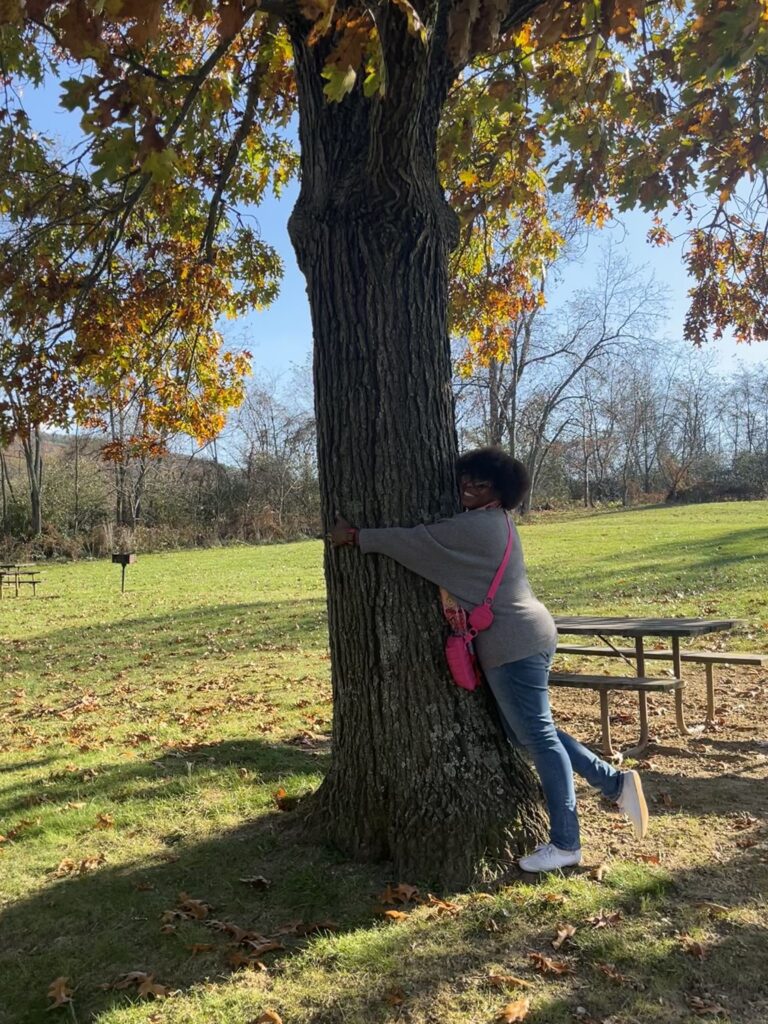The Future of Mental Health Conference: A Beacon of Hope and Inspiration
The Future of Mental Health Conference stands as a beacon of hope and inspiration, bringing together luminaries, experts, and advocates from diverse backgrounds to share their wisdom and expertise. Through engaging presentations, heartfelt discussions, and powerful testimonials, the conference offered a panoramic view of the evolving landscape of mental wellness.
From the very outset, Day 1 of the conference set the stage for an enlightening experience. Speakers provided invaluable tools and perspectives for navigating the complexities of mental health in today’s world. Reflecting on their insights, we’re reminded of the profound impact that each individual can have in shaping the future of mental wellness.
Throughout the conference, themes of inclusivity, empowerment, and community support reverberated, underscoring the importance of embracing diversity and fostering solidarity in our journey towards mental well-being. Each day, we found ourselves immersed in a tapestry of ideas and experiences, each thread contributing to the rich fabric of our collective understanding.
Attending the Future of Mental Health Conference was a truly inspiring and transformative experience. As someone passionate about mental wellness, I found the exchange of ideas and cutting-edge approaches both enlightening and invigorating. Here are some key insights and reflections from the conference, along with practical advice for everyone interested in mental health.
Embracing Innovation and Peer Support
Innovation and peer support are transforming the landscape of mental health care. Embracing new technologies and approaches allows us to provide more effective, accessible, and personalized care. At the same time, peer support fosters a sense of community and shared understanding, helping individuals feel less isolated in their struggles. By integrating innovative solutions with the wisdom and empathy of peer support, we can create a more holistic and compassionate approach to mental health. This combination empowers individuals to take control of their mental well-being, offering tools and support networks that make a real difference.
Cece Cheng: Founder & CEO of ShareWell
Cece Cheng’s journey to creating ShareWell highlighted the power of peer support in mental health. She shared, “ShareWell started because I was looking for something like ShareWell, and it just didn’t exist.” This made me realize the importance of having platforms where people can support each other through shared experiences. Sometimes, talking to someone who has gone through similar struggles can be just as helpful as professional therapy. You can learn more about her work here or even become a host here.

Takeaway: Consider joining or starting a peer support group. Sharing your experiences and listening to others can provide mutual understanding and encouragement.
Redefining Failure and Success
I recall moments in my own life where perceived failures led to unexpected opportunities and personal development. These experiences highlight that our journeys are rarely straightforward, and each setback can be a step forward in disguise.
Zhi Wei Zheng: Mental Health Influencer
Zhi Wei Zheng’s perspective on failure was particularly thought-provoking because she challenges the common fear of failure. She stated, “Failure can be a part of success… what if this is the perfect opportunity for me to grow?” This reminded me that setbacks are not just obstacles but opportunities to learn and grow. Embracing this mindset can transform how we approach challenges and reduce the fear of failure. Reflecting on this, I see how authenticity in relationships—whether personal or professional—can break down barriers and build genuine connections. Follow her journey here or on Instagram @momentswithzh.
Takeaway: When faced with a setback, try to see it as a learning experience. Ask yourself what you can learn from the situation and how it can help you grow.
Addressing Stigma in Mental Health
Mental health stigma persists as a formidable barrier, casting shadows of shame and silence over those who struggle. This societal stigma often leads to misconceptions, discrimination, and reluctance to seek help. Yet, as we shed light on this issue, we begin to dismantle the walls of stigma brick by brick.

Mitul Desai: Co-Founder of The Care Hack
Mitul Desai highlighted this critical issue of stigma surrounding mental health. He poignantly noted, “When someone in your family is diagnosed with cancer or has a heart attack, you are greeted with flowers and hallmark cards. When someone in your family is diagnosed with schizophrenia, you are greeted with silence.” This made me reflect on how important it is to speak openly about mental health and support those who are struggling. Breaking this silence through open conversations and support is crucial for creating a more accepting society. Discover more about his work here or on Instagram @thecarehac.
Takeaway: Be an advocate for mental health by talking openly about it and supporting those around you. Simple acts of kindness and understanding can make a big difference.
Integrating Technology with Empathy
How do we leverage technology without losing the warmth of human interaction? It’s essential to recognize that while technology offers convenience, it can’t replace the empathy and understanding provided by a caring human touch.











Dr. Brian Hasselfeld: Johns Hopkins Medicine
Dr. Brian Hasselfeld emphasized the need to balance technological advancements with human connection in healthcare. “Healthcare isn’t just about a predictive answer, but it’s also about human connection,” he said. This reminded me of the importance of maintaining empathy and compassion in our increasingly digital world. Dr. Hasselfeld’s point underscores a growing challenge in mental health care: how to harness technology to enhance treatment without losing the human touch that is so vital to effective therapy. Connect with him on LinkedIn here.
Takeaway: While using technology to stay informed and connected, don’t forget the value of face-to-face interactions and genuine human connections. A kind word or a listening ear can go a long way.
Rethinking Balance
As someone who has grappled with the elusive quest for balance myself, I’ve come to realize that life’s unpredictability requires adaptability rather than rigid equilibrium.
Meimei Fox: Founder & CEO of Your Bestselling Book
Meimei Fox challenged the conventional notion of balance. “I don’t believe in balance. You can spend your whole life trying to get balance, and if you get balance, you get it for like a heartbeat, and then it goes away again,” she explained. This perspective is liberating and reminds us that life is inherently dynamic. Instead of striving for perfect balance, we should focus on what matters most in the moment. You can follow her insights on her website, LinkedIn, and Instagram.
Takeaway: Don’t stress about achieving perfect balance. Focus on what’s important to you right now and give yourself grace when things feel unbalanced.
The Power of Authenticity
Authenticity is a powerful force in our lives. It involves being true to yourself, embracing your unique qualities, and expressing your genuine thoughts and feelings. When we live authentically, we foster deeper connections, build trust, and inspire others to do the same. Embracing authenticity means acknowledging and accepting our flaws, celebrating our strengths, and living in alignment with our values. It empowers us to lead more fulfilling lives and create a positive impact in our communities.
Zak Hazlett: Marriage and Family Therapist
Zak Hazlett emphasized that “authenticity and vulnerability are the most contagious things ever.” This resonated with me deeply, as being true to ourselves and showing vulnerability can create stronger, more supportive relationships. Stay connected with him through his website, LinkedIn, and Instagram.
Takeaway: Be yourself and encourage others to do the same. Authenticity can build stronger connections and promote healing and support.
Advancing Psychedelic Research
The field of psychedelic research is opening exciting new possibilities for mental health treatment. Groundbreaking studies are revealing the potential of psychedelics to address conditions like depression, PTSD, and anxiety in ways that traditional therapies often cannot. This research is not just about developing new medications; it’s about rethinking how we understand and treat mental health.
Renee Franzwa: Director of Education, MAPS
Renee Franzwa discussed the exciting potential of psychedelic research in mental health. She highlighted the need for advancing policy and training therapists in this emerging field. Psychedelics are showing promise in treating conditions like PTSD and depression, but equitable access and proper training are essential. This is an area of mental health that is rapidly evolving, offering new hope for those with treatment-resistant conditions. It’s a reminder of the importance of staying informed and open-minded about emerging therapies. Learn more about her work on her website, LinkedIn, and Instagram.
Takeaway: Stay informed about new developments in mental health treatments. Being open to emerging therapies can provide new hope and options for those in need.
Building Community and Support
I’ve been given a lot. So I want to give back a lot, even at a cost to myself.” ~Adrian Aoun, CEO and founder of Forward
Building strong, supportive communities is essential for promoting mental health and well-being. When we connect with others, we create a network of support that can help us navigate life’s challenges. Community offers a sense of belonging, shared understanding, and mutual encouragement. Supportive communities can take many forms, from close-knit family circles and friendships to larger networks like support groups and social organizations. These connections provide emotional support, reduce feelings of isolation, and offer practical assistance when needed.
Shawnti Refuge: Mental Health Coach & Author
Shawnti Refuge’s call for unity in mental health was powerful. “We are resilient people. We need to come together and not fight against each other when it comes to taking care of ourselves,” she said. Building supportive communities can enhance resilience and improve mental health outcomes. I’ve seen firsthand how community support can transform lives. Whether it’s through local groups or online communities, collective support can create a safety net that helps individuals thrive. Stay connected with her through her website, LinkedIn, and Instagram.

Takeaway: Foster a sense of community among your friends and family. Supporting each other can significantly enhance resilience and well-being.
Inclusive Storytelling and Advocacy
At DG Speaks, our commitment to inclusive storytelling and advocacy is unwavering. We strive to amplify diverse voices and illuminate often marginalized perspectives. Through our platform, we aim to dismantle layers of oppression and cultivate deeper understanding and empathy for all individuals.
Geena Rocero: LGBTQ+ Rights Activist
Geena Rocero, a prominent LGBTQ+ rights activist, echoes our sentiments on inclusive storytelling. “If we do that, we automatically deconstruct all the intersecting layers of oppression,” she said. This approach is crucial for addressing the unique challenges faced by marginalized communities in mental health care. Her words serve as a poignant reminder of the significance of elevating diverse narratives. By embracing inclusivity in our storytelling, we can address the unique challenges faced by marginalized communities in mental health care. Follow her on Twitter, Instagram, and check out her memoir, Horse Barbie.
Takeaway: Advocate for and listen to the voices of marginalized communities. Inclusive storytelling can help address disparities and promote equity in mental health care.
Practical Advice for Everyday Wellness
- Join or Start a Peer Support Group: Sharing your experiences and listening to others can provide mutual understanding and encouragement.
- Embrace Setbacks as Learning Opportunities: View failures as chances to learn and grow, rather than obstacles.
- Speak Openly About Mental Health: Break down stigma by talking openly about mental health and supporting those around you.
- Balance Technology with Human Connection: While using digital tools, maintain face-to-face interactions and genuine human connections.
- Focus on Present Priorities: Don’t stress about achieving perfect balance. Concentrate on what matters most to you right now.
- Be Authentic: Encourage authenticity in yourself and others to build stronger connections.
- Stay Informed on New Therapies: Be open to emerging mental health treatments, such as psychedelic research.
- Foster Community Support: Build supportive communities among your friends and family.
- Advocate for Inclusive Storytelling: Ensure that marginalized voices are heard and respected in conversations about mental health.
Attending the Future of Mental Health Conference reinforced the importance of innovation, empathy, and community in our everyday lives. By integrating these insights and approaches, we can all better support our mental well-being and the well-being of those around us.



